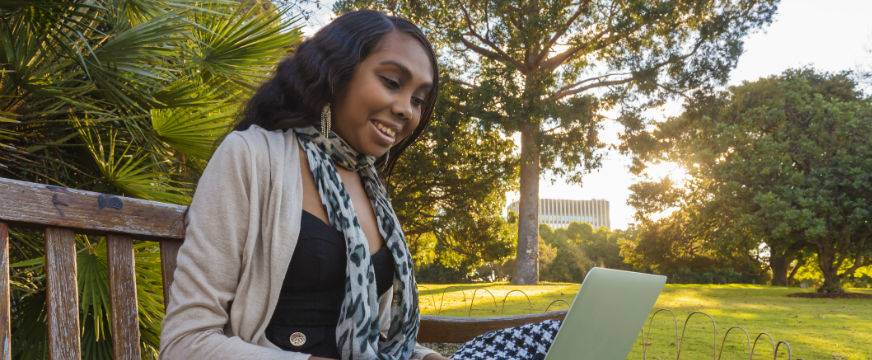
Celebrating the research of Aboriginal and Torres Strait Islander women
Research 3 Dec 2018 4 minute readACER’s Australian Journal of Education (AJE) has published a Special Issue highlighting Aboriginal and Torres Strait Islander women’s scholarly work.
The AJE’s Special Issue ‘Aboriginal and Torres Strait Islander Women of Higher Degree: Standing on the Shoulders of Giants’ guest edited by Dr Melitta Hogarth and Professor Tracey Bunda, celebrates how the achievements of Aboriginal and Torres Strait Islander women build on the persistence and support provided by those who came before them.
The theme of the 2018 National Aborigines and Islanders Day Observance Committee (NAIDOC) Week – ‘Because of Her, We Can’ – coincided with an idea Dr Melitta Hogarth of the University of Southern Queensland had conceived to collect and promote the scholarly work of Aboriginal and Torres Strait Islander women. The idea proved popular among her network, and developed into the AJE’s first special issue on Indigenous education. The guest editors and authors of this Special Issue are Indigenous women, except in one article.
The AJE - edited by ACER Principal Research Fellow Dr Petra Lietz and published by SAGE in association with ACER - was happy to act as a platform for this idea. In their editorial, Dr Melitta Hogarth and Professor Tracey Bunda said, ‘The opportunity to celebrate the work of Aboriginal and Torres Strait Islander warrior women researchers was a natural extension of the NAIDOC week theme.’
The articles in the special issue cover a range of areas:
- Bronwyn Fredericks and Nereda White explore Indigenous women’s presence in higher education as students and staff.
- Sue Green, Jessica Russ-Smith and Lauren Tynan, an Associate Professor and two PhD students, explore their experiences on their journeys of claiming their places within academia as Indigenous women
- Janet Mooney, Lyn Riley and Fabri Blacklock use a yarning methodology, which is a culturally appropriate conversational process of sharing stories to develop knowledge and educate younger generations. They generate new knowledge on what works and why for Aboriginal woman in academia.
- Linda Payi Ford, Kathy Gotha Guthadjaka, James Walung Daymangu, Bettina Danganbar, Colin Baker, Chloe Ford, Emily Ford, Nicole Thompson, Mark Ford, Ruth Wallace, Marianne St Clair, David Murtagh focuses on leadership by women in Indigenous research in the higher education sector of Australia.
- Doseena Fergie writes of those within her ‘sphere of influence’ who enabled her to stand on their broad shoulders to face the challenges and bask in the joys within the tertiary sector, and, around the world. She discusses how one transfers the learnings of living in ‘two worlds’ to a largely non-Indigenous student cohort.
- Michelle Lea Locke writes a letter to her ancestral grandmother, whose high exam results challenged the opinions of the day, to tell her about the Aboriginal women who have challenged the status quo of western based educational frameworks and research paradigms. This article honours the Aboriginal women who have paved a way for Aboriginal knowledges in mainstream educational institutions in ways that her grandmother was unable to experience and perhaps even imagine in her lifetime.
‘The contributions to this Special Issue are truly the scholarly expression of Because of Her, We Can,’ Dr Hogarth said.
Further information:
You can read the Special Issue articles for free for a limited time via the AJE’s OnlineFirst section.
Subscribe to the Australian Journal of Education.
